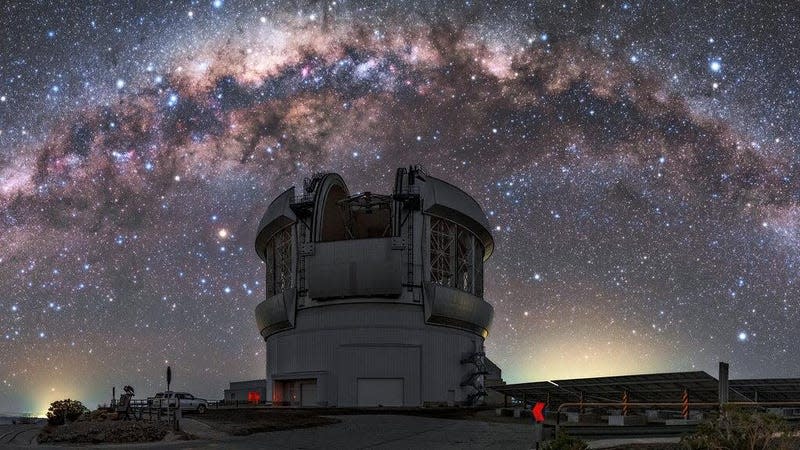Hackers Force Shutdown of Two Key Astronomical Observatories

The Gemini South observatory in Chile.
The International Gemini Observatory, a key player in global astronomical research, has temporarily halted astronomical operations following a cyberattack. The culprits and their motives remain unknown.
The computer hack, which took place on the morning of August 1, led to the suspension of the Gemini North and South Telescopes, as detailed in an August 24 statement from the National Optical-Infrared Astronomy Research Laboratory (NOIRLab). While the North telescope is situated in Hawaii, its southern counterpart is located on Cerro Pachón, Chili, with a few other smaller telescopes located in Cerro Tololo, also in Chile. Observatories stationed on Arizona’s Kitt Peak, however, remain unaffected by the intrusion, according to NOIRLab.
Read more
Early Starfield Reviews Are Generally Positive, From Mild Disappointment To Glowing Praise
Ruby Franke, Popular Parenting YouTuber, Arrested for Alleged Child Abuse
Designer Says The Only Way To Fix The Cybertruck Is To Scrap It And Start Over
Backed by the National Science Foundation (NSF), NOIRLab plays a pivotal role in optical and infrared ground-based astronomical observations. While the Gemini Observatory’s telescopes aren’t the largest based on mirror size, they stand out due to their versatility, innovative instruments, and geographically strategic placement in both the Northern and Southern Hemispheres. This gives researchers access to an expansive range of astronomical objects and phenomena.
For the time being, Gemini North has been securely positioned in its zenith-pointing orientation. NOIRLab credits the prompt actions of its security team for preventing any damage to the observatory. As to who is responsible for the hacks, or their motivations, that remains either unknown or undisclosed. NOIRLab has been tight-lipped about the incident, claiming that it is “limited” in what it can share about its “cybersecurity controls and investigatory findings.”
The nature of the hacks is not known, but as Space.com points out, the U.S. National Counterintelligence and Security Center (NCSC) had previously alerted the public about such threats—and even the potential for espionage—in the space sector, emphasizing the critical importance of space assets to national security and economic strength.
Astronomical observatories have faced cyberattacks before, as Space.com also points out. Last year, the Atacama Large Millimeter/submillimeter Array (ALMA) in Chile was targeted. NASA has also been subject to similar attacks, prompting its leadership to emphasize the urgent need for enhanced cybersecurity.
Correction: An earlier version of the post incorrectly identified the location of the Gemini South. It is on Cerro Pachón and not Cerro Tololo.
More from Gizmodo
Starfield’s Shipbuilding Seems Like A Frustrating Experience
Tim Scott Being a 57-Year-Old Bachelor Is Reportedly Spooking Republican Donors
Netflix’s One Piece Live-Action Series Delivers More Than It Disappoints
Super Mario Bros. Wonder Is A Whole New Approach To 2D Mario Games
Sign up for Gizmodo's Newsletter. For the latest news, Facebook, Twitter and Instagram.

